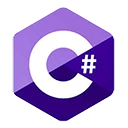Introduction
Debugging is a crucial part of software development, and it plays a significant role in ensuring your C# applications work correctly. This guide provides in-depth insights into debugging C# applications, offering tips and tricks to improve your debugging skills. Sample code and techniques are included to help you become a more effective C# developer.
Key Debugging Tools in C#
C# developers have access to a range of powerful debugging tools and techniques, including:
- Visual Studio Debugger: Visual Studio provides a robust integrated debugger with features like breakpoints, watch windows, call stacks, and immediate windows for interactive debugging.
- Logging: Logging frameworks like NLog and log4net enable you to record application behavior and inspect log files to identify issues.
- Exception Handling: C# allows you to catch and handle exceptions, providing valuable information about errors in your application.
- Profiling Tools: Profilers can help you identify performance bottlenecks and memory issues in your code.
Tips and Tricks for Debugging C# Code
Effective debugging involves more than just setting breakpoints. Here are some tips and tricks to enhance your debugging skills:
- Use Breakpoints Strategically: Place breakpoints where you suspect issues and use conditional breakpoints to stop execution only when specific conditions are met.
- Inspect Variables: Utilize watch windows to inspect variable values and evaluate expressions during debugging sessions.
- Logging for Insights: Implement comprehensive logging in your code to record application behavior and errors. Tailor log levels for different scenarios.
- Exception Handling: Catch exceptions at the right level of your code, and log detailed exception information for troubleshooting.
- Profiling for Performance: Use profiling tools to identify performance bottlenecks, memory leaks, and resource usage in your application.
Sample Debugging Code
Below is an example of C# code that includes breakpoints and logging to illustrate debugging techniques.
C# Code (Debugging Example):
using System;
class Program
{
static void Main()
{
Console.WriteLine("Debugging C# Code");
for (int i = 0; i < 10; i++)
{
Console.WriteLine($"Iteration {i}");
if (i == 5)
{
Console.WriteLine("Breakpoint here"); // Set a breakpoint
}
}
// Simulate an exception
try
{
int result = 10 / 0; // Divide by zero
}
catch (Exception ex)
{
Console.WriteLine("Exception caught: " + ex.Message);
}
// Logging
Log("Application started.");
Log("Loop completed.");
Log("Application finished.");
}
static void Log(string message)
{
// Implement a logging mechanism (e.g., log to a file or console)
Console.WriteLine($"[LOG] {DateTime.Now:yyyy-MM-dd HH:mm:ss}: {message}");
}
}
Conclusion
Debugging is an essential skill for C# developers, and effective debugging can save you time and frustration. This guide provided insights into debugging tools, tips, and best practices for debugging C# code. As you apply these techniques to your projects, you'll become more proficient at identifying and resolving issues, resulting in higher-quality C# applications.

